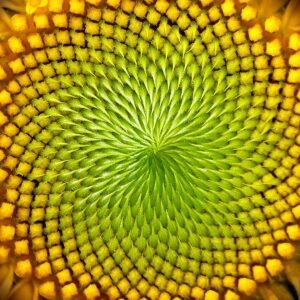Occult themes have long fascinated readers and writers alike, weaving their way through literature from ancient myths to modern bestsellers. The allure of hidden knowledge and mystical powers has captivated audiences for centuries, shaping our cultural perceptions of magic and the supernatural. From Goethe’s Faust to J.K. Rowling’s Harry Potter series, occult philosophy has played a significant role in shaping literary narratives and character development.
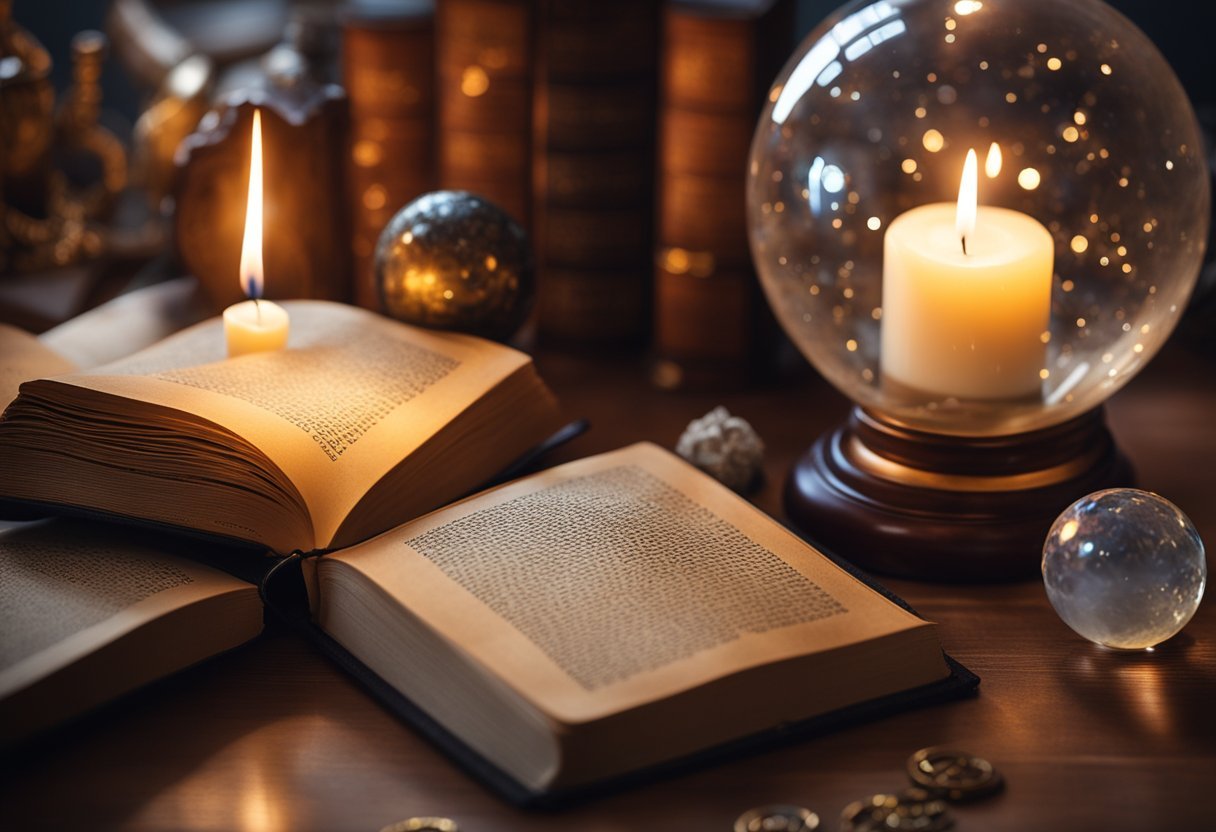
The influence of occult themes in literature extends far beyond mere plot devices. These elements often serve as metaphors for human desires, struggles, and the quest for understanding in a complex world. The legendary Doctor Faustus and the young wizard Harry Potter both embody the human fascination with power and knowledge, while their stories explore the moral implications of wielding such abilities.
As occult philosophy continues to permeate popular culture, it shapes how we view magic and mysticism in our daily lives. The immense popularity of the Harry Potter novels and films demonstrates the enduring appeal of magical themes in contemporary society. These stories not only entertain but also prompt readers to consider deeper questions about morality, power, and the nature of reality.
Key Takeaways
- Occult themes in literature reflect human desires and struggles while exploring moral complexities.
- Literary works featuring occult elements shape cultural perceptions of magic and mysticism.
- The enduring popularity of occult-themed literature demonstrates its deep resonance with readers across generations.
Historical Overview of Occult Philosophy in Literature
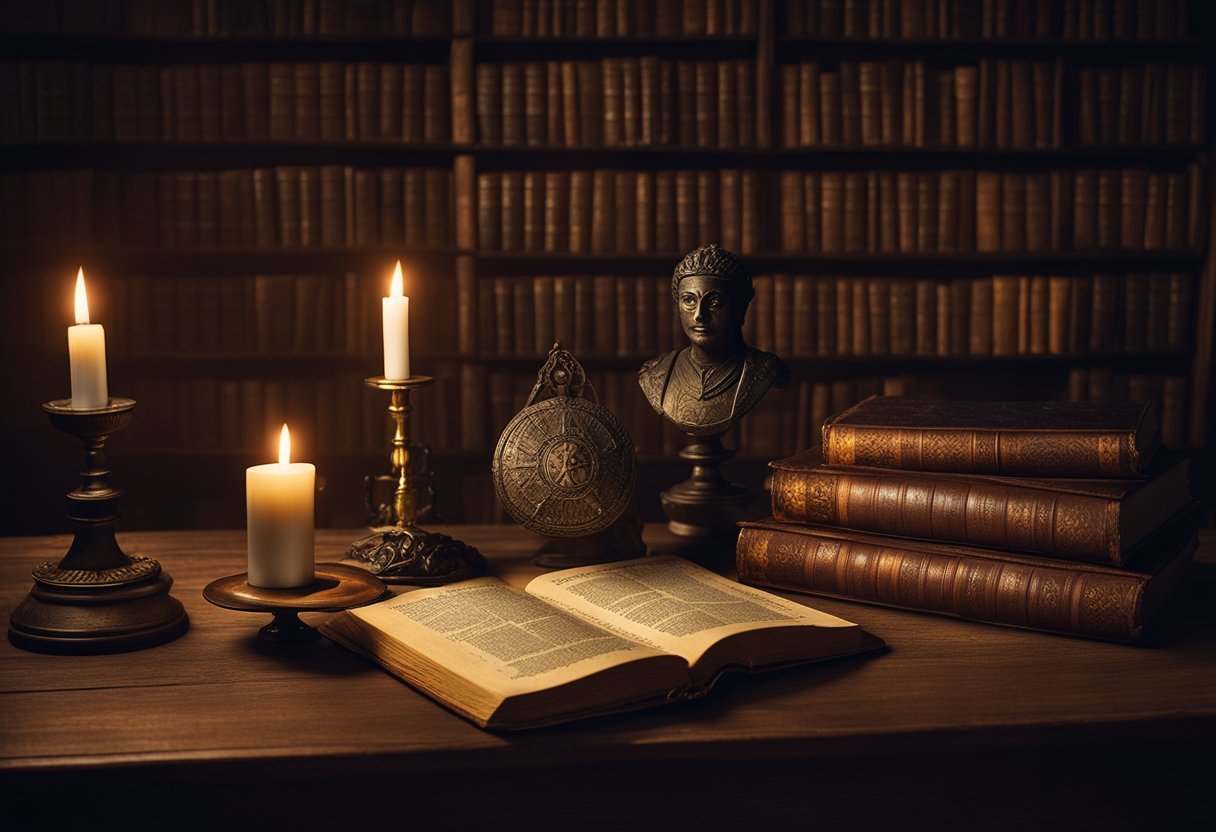
Occult philosophy has profoundly shaped literature throughout history, weaving mystical themes into narratives and influencing cultural perceptions of magic. Its evolution spans ancient wisdom traditions to modern fantasy, reflecting changing intellectual and spiritual currents.
Ancient Beginnings and Intellectual Tradition
The roots of occult philosophy in literature trace back to ancient civilizations. Egyptian and Greco-Roman texts explored magical practices and esoteric knowledge. The Hermetica, a collection of Egyptian-Greek wisdom texts, significantly influenced Western esoteric traditions.
Medieval literature incorporated alchemical symbolism and mystical themes. Works like Dante’s “Divine Comedy” blended Christian theology with esoteric concepts.
The Renaissance saw a revival of occult studies. Figures like Marsilio Ficino and Pico della Mirandola synthesized Neoplatonism, Hermeticism, and Kabbalah, creating a rich intellectual tradition that inspired literary works.
Early Modern Prose and the Birth of the Faust Legend
The early modern period witnessed a surge in occult-themed literature. Christopher Marlowe’s play “Doctor Faustus” popularized the legendary figure of Faust, a scholar who makes a pact with the devil.
This tale became a cornerstone of occult literature, inspiring numerous adaptations. Johann Wolfgang von Goethe’s “Faust” expanded the legend, exploring themes of human striving and redemption.
Occult philosophy found expression in other literary works. Shakespeare incorporated magical elements in plays like “The Tempest” and “Macbeth”.
Romanticism, Gothicism, and the Rise of Occultism
The Romantic movement embraced mysticism and the supernatural. Poets like William Blake and Samuel Taylor Coleridge infused their works with esoteric symbolism and visionary experiences.
Gothic literature, exemplified by Mary Shelley’s “Frankenstein”, explored the dark side of occult knowledge and scientific pursuits. These works often blurred the lines between science, magic, and the supernatural.
The 19th century saw a revival of occultism in literature. Authors like H.P. Lovecraft created cosmic horror tales steeped in occult lore. Theosophical ideas influenced writers such as W.B. Yeats, shaping their mystical visions and poetic imagery.
Character Archetypes and Roles in Occult Literature
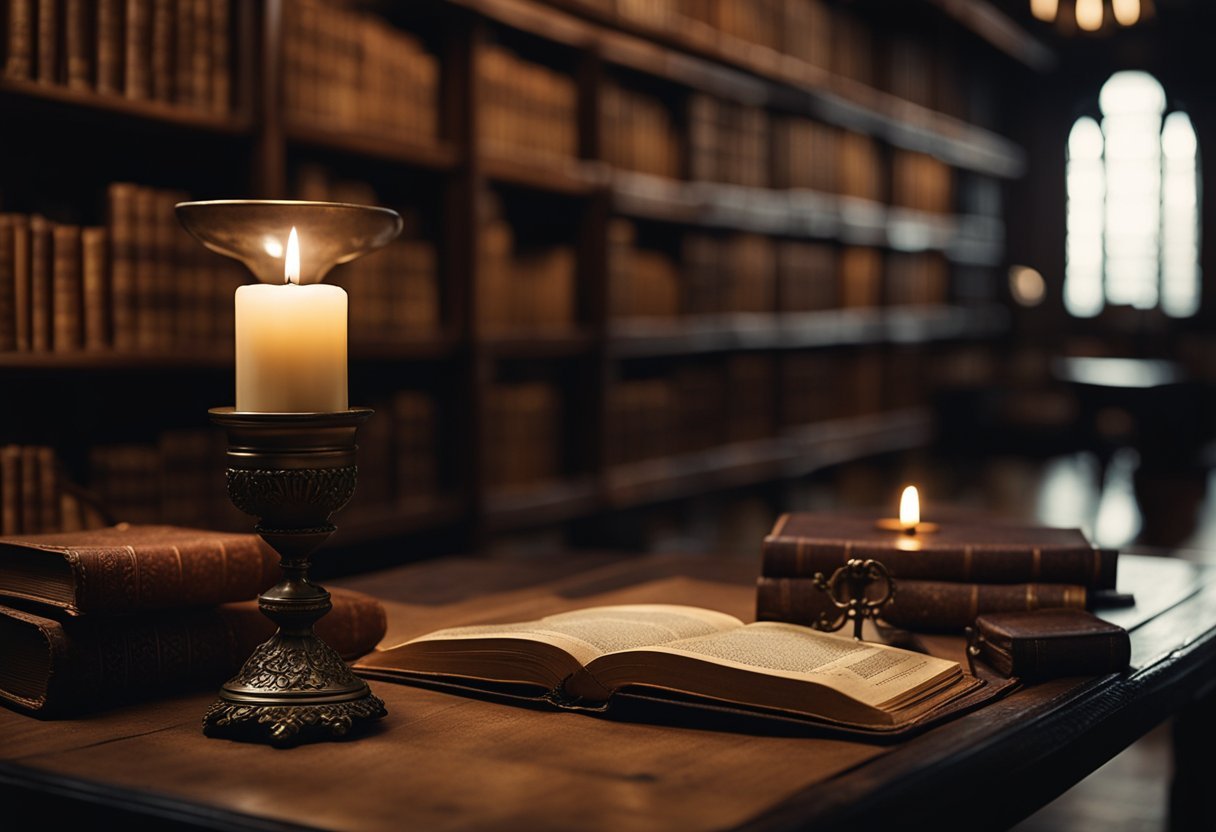
Occult literature features distinct character types that shape narratives and reflect broader cultural views of magic and mysticism. These archetypes embody different aspects of esoteric knowledge and practices, serving as conduits for exploring the unknown.
The Magician and the Seeker
The magician archetype represents mastery over occult forces. This character often possesses secret knowledge and wields supernatural power. Examples include Doctor Faustus and Dumbledore from Harry Potter.
The seeker, in contrast, embodies the quest for hidden truths. This character drives the narrative through their pursuit of occult knowledge. Harry Potter exemplifies the seeker archetype, as he unravels magical mysteries throughout his journey.
These archetypes often interact, with the magician guiding or challenging the seeker. Their relationship explores themes of power, wisdom, and the consequences of pursuing forbidden knowledge.
Witches and Warlocks: A Cultural Exploration
Witches and warlocks have long captivated readers’ imaginations. These characters embody both fear and fascination with the occult. In literature, they often represent subversive power and alternative spirituality.
Female witches frequently challenge societal norms, embodying feminine power outside patriarchal structures. Male warlocks may represent corrupted authority or forbidden knowledge.
Popular culture has reshaped these archetypes, often portraying witches and warlocks more sympathetically. This shift reflects changing attitudes towards alternative spiritualities and gender roles in society.
The Alchemist: Bridging Science and the Occult
The alchemist archetype stands at the intersection of science and mysticism. This character embodies the quest to transform base materials into gold, both literally and metaphorically.
Alchemists in literature often grapple with ethical dilemmas surrounding the pursuit of knowledge and power. They explore themes of transformation, immortality, and the boundaries of human understanding.
Notable alchemist characters include:
- Nicolas Flamel in Harry Potter
- Victor Frankenstein, whose scientific pursuits blur into the occult
- Characters in Paulo Coelho’s “The Alchemist”
These figures challenge readers to consider the relationship between scientific progress and spiritual wisdom, reflecting broader cultural debates about the nature of knowledge and reality.
Genre and Form: How Occult Themes Shape Poetry and Drama
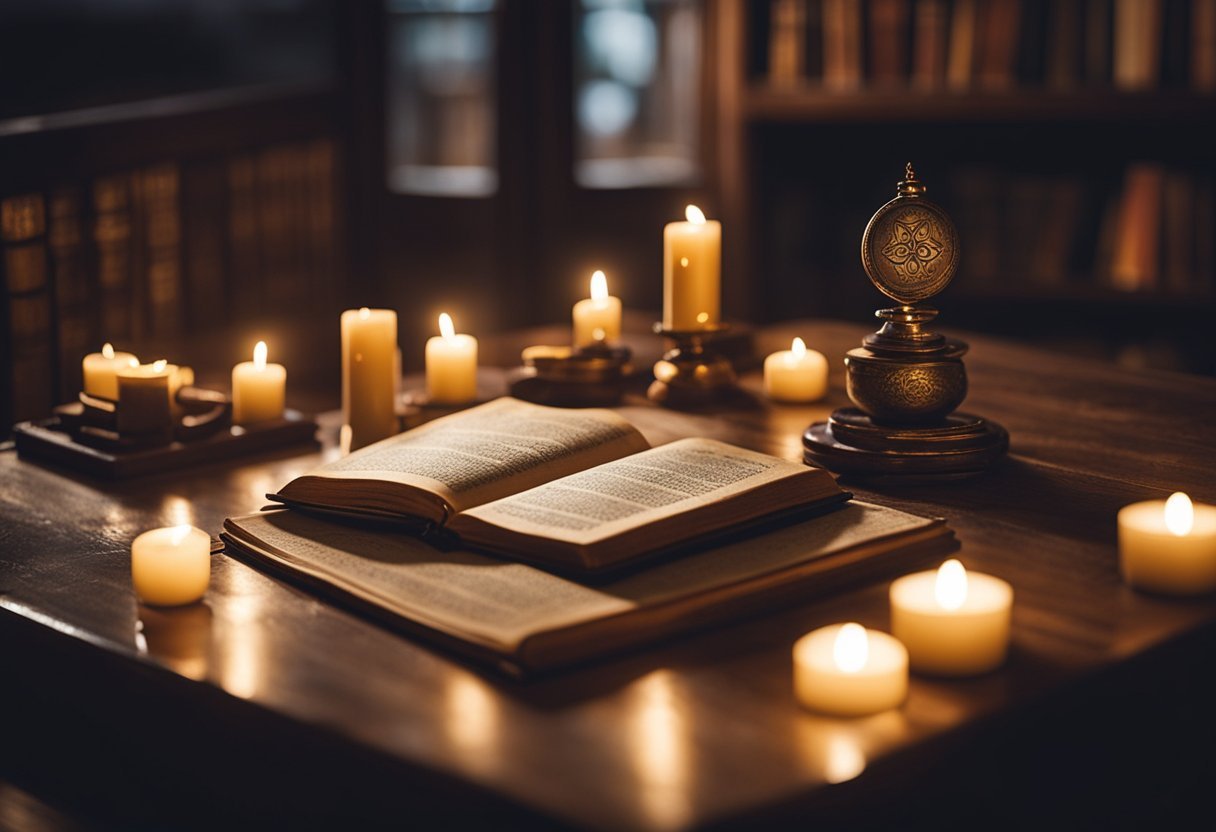
Occult themes permeate various literary forms, influencing the structure and content of poetry, drama, satire, and farce. These genres provide unique vehicles for exploring mystical concepts and supernatural elements.
Occult Symbolism in Poetry
Poetry serves as a powerful medium for conveying occult ideas. Poets often use mystical quests and emotions to evoke a sense of the sublime and terror. Symbolism plays a crucial role in occult poetry, with poets employing arcane imagery to represent hidden truths.
William Butler Yeats, a renowned poet, incorporated occult symbols extensively in his work. His poetry frequently references astrology, alchemy, and Kabbalah. Yeats even attempted to create a Celtic Mystical Order, further emphasizing his commitment to occult themes.
Contemporary poets continue this tradition. They often use tarot card imagery, magical creatures, and esoteric philosophies to craft verses that resonate with readers seeking deeper meanings.
Drama and Satire: Conveying the Otherworldly
Dramatic works provide a unique platform for exploring occult themes. Christopher Marlowe’s “Doctor Faustus” stands as a prime example, delving into the consequences of dabbling in forbidden knowledge and dark magic.
The legend of Faust has inspired numerous dramatic adaptations, each offering a different perspective on the occult. These plays often serve as cautionary tales, warning audiences about the dangers of unchecked ambition and supernatural forces.
Satirical works also incorporate occult elements to critique society. Playwrights use supernatural characters and magical plot devices to highlight human follies and societal issues. This approach allows for biting commentary while maintaining a veil of fantasy.
Farce and Fantasy: Light-Hearted Approaches to Occult Themes
Not all dramatic treatments of the occult are serious. Farcical plays often incorporate supernatural folklore and magical elements for comedic effect. These light-hearted approaches make occult themes more accessible to a wider audience.
Fantasy plays blend magical elements with humor, creating entertaining spectacles. Shakespeare’s “A Midsummer Night’s Dream” exemplifies this approach, using fairies and enchantments to drive the plot and generate laughter.
Modern theatrical productions continue to use occult themes in innovative ways. They often combine special effects with traditional storytelling to create immersive experiences that blur the lines between reality and the supernatural.
Modernism and the Occult: New Perspectives in the 20th Century
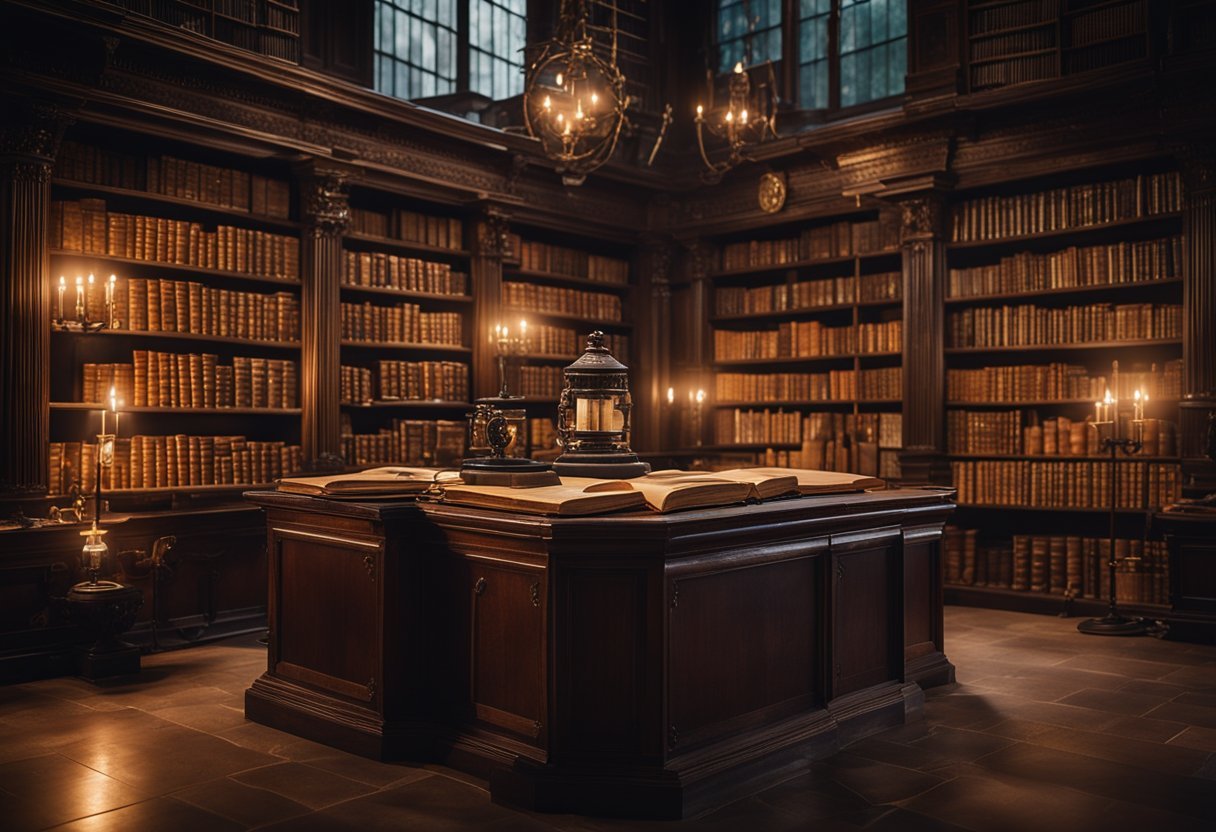
The 20th century saw a resurgence of occult influences in modernist literature and art. This period marked a shift in how mystical and esoteric ideas were integrated into creative works.
August Strindberg and the Influence of Occult Ideology
August Strindberg, a Swedish playwright and novelist, embraced occult philosophies in his later works. His 1897 novel “Inferno” drew heavily from alchemical symbolism and personal mystical experiences.
Strindberg’s experimentation with automatic writing techniques predated the Surrealists by decades. He believed these methods could access deeper truths and unconscious realms.
The playwright’s fascination with Swedenborgianism influenced his dramatic works. This spiritual system informed Strindberg’s use of symbolism and his exploration of the boundaries between the physical and spiritual worlds.
From Surrealism to Modernist Art: A New Aesthetic
Surrealism, emerging in the 1920s, incorporated occult concepts into its artistic philosophy. André Breton, the movement’s founder, was deeply influenced by esoteric traditions.
Surrealist artists like Max Ernst and Salvador Dalí used occult imagery in their paintings. These works often featured alchemical symbols, tarot imagery, and mystical landscapes.
Modernist writers also drew inspiration from occult ideas. W.B. Yeats incorporated Celtic mysticism and the Hermetic Order of the Golden Dawn teachings into his poetry.
The influence of occultism extended to abstract art. Wassily Kandinsky’s theories on color and form were partly inspired by Theosophy, a spiritual movement popular among artists and intellectuals of the time.
Occult Philosophy in Contemporary Literature
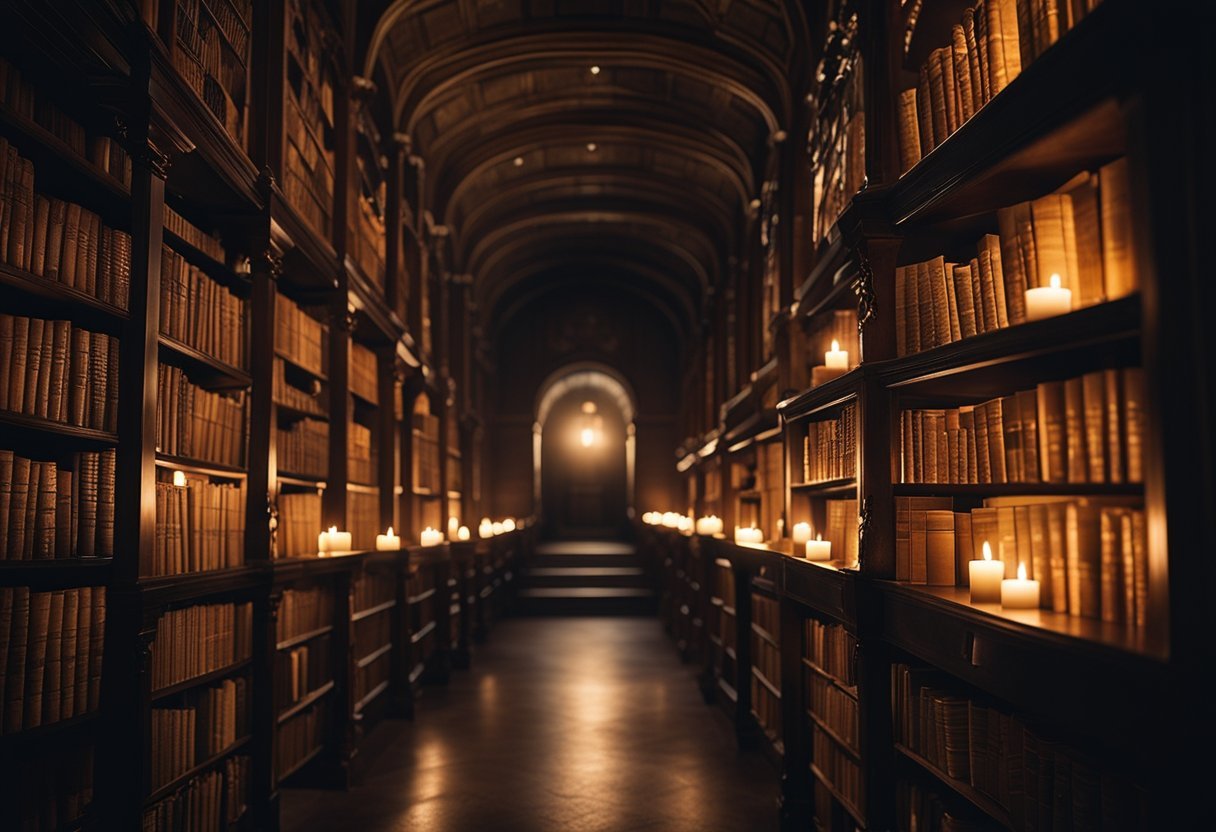
Contemporary literature has embraced occult themes, weaving mystical elements into narratives that captivate readers. These works often explore the boundaries between reality and magic, challenging conventional beliefs about the supernatural.
The Profound Impact of Fantasy Series Like Harry Potter
The Harry Potter series revolutionized the way occult philosophy is presented in literature. J.K. Rowling’s magical world introduced readers to a complex system of spells, potions, and magical creatures. The series explores themes of good versus evil, the power of love, and the consequences of seeking immortality.
Harry Potter’s popularity sparked a renewed interest in occult literature among young readers. The books’ depiction of a hidden magical world existing alongside our own resonated with millions, inspiring fan theories and academic discussions about the nature of magic and its role in society.
Crossing Boundaries: Digital Materials and Interactive Media
Digital platforms have expanded the reach of occult themes in literature. E-books and interactive novels allow readers to engage with mystical content in new ways. Online communities dedicated to discussing occult philosophy in literature have flourished, creating spaces for fans to share interpretations and theories.
Virtual reality experiences based on occult-themed literature immerse users in magical worlds. These digital materials blur the lines between fiction and reality, allowing readers to “experience” magic firsthand. Interactive storytelling apps incorporate elements of divination and spell-casting, bringing occult concepts to life through technology.
Social media has also become a platform for sharing occult-inspired content, with authors and fans alike creating and sharing original works that explore mystical themes.
Critical Reception and Analysis
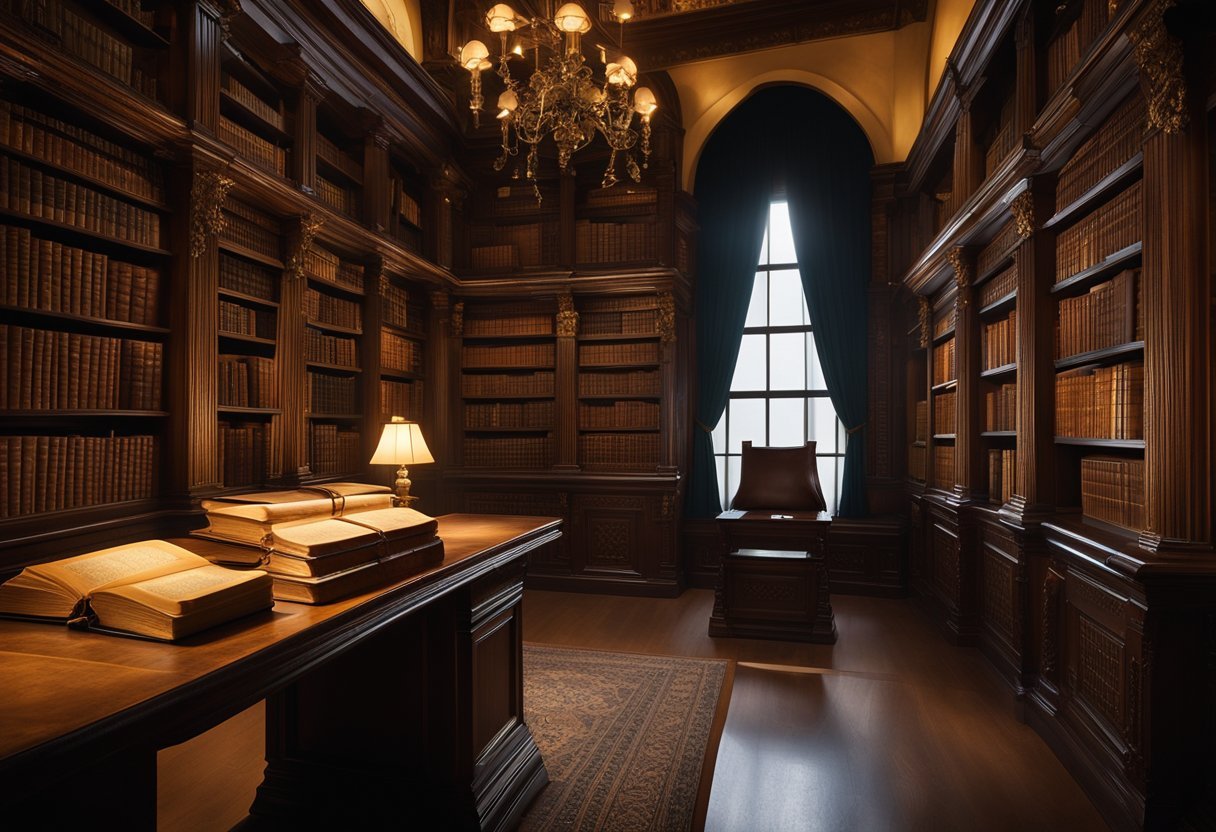
Occult themes in literature have sparked intense debate among scholars and the public. Critics have scrutinized these works for their portrayal of magic and mysticism, while readers have embraced or rejected them based on personal beliefs and cultural context.
Literary Criticism and the Examination of the Occult
Literary scholars have analyzed occult elements in works from Goethe’s Faust to modern fantasy novels. They examine how authors incorporate mystical concepts and magical practices into their narratives, often drawing parallels to historical occult traditions.
Critics debate the authenticity and accuracy of occult representations in literature. Some argue that these portrayals romanticize or misrepresent esoteric practices, while others praise authors for their creative interpretations.
The reception of occult themes varies across different literary periods. Victorian-era critics often viewed such works with suspicion, while modern scholars tend to approach them with more nuanced perspectives.
Public Perception and Scholarly Debate
Public reaction to occult-themed literature has shifted over time. In the past, books featuring magic were often controversial, facing censorship or public outcry. Today, many readers embrace occult elements in fiction, particularly in the fantasy genre.
Scholars continue to debate the impact of occult literature on society. Some argue that these works promote interest in alternative spiritualities, while others see them as harmless entertainment.
The popularity of series like Harry Potter has reignited discussions about the role of occult themes in children’s literature. Educators and parents have engaged in heated debates about the appropriateness of such content for young readers.
Further Reading and Study
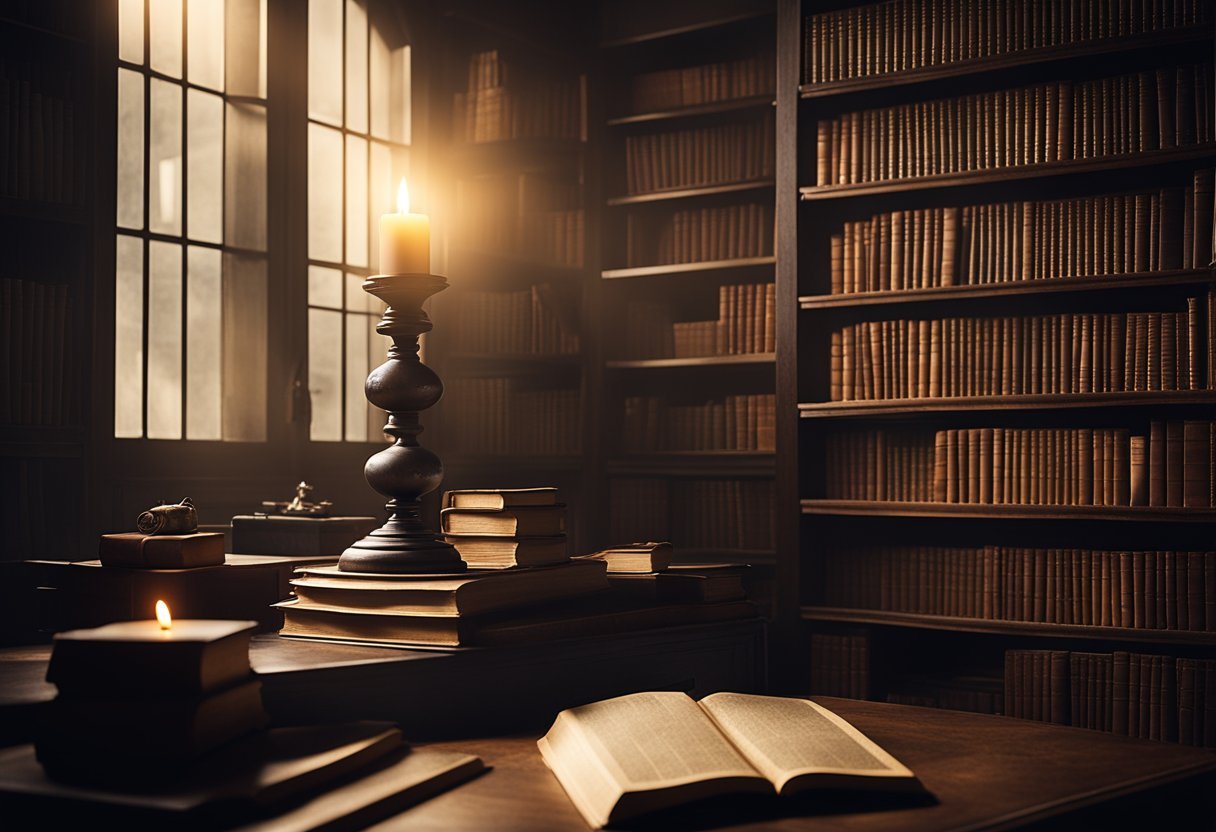
Delving deeper into occult philosophy in literature requires exploring core texts and accessing scholarly resources. The following recommendations provide a solid foundation for further research and study.
Core Texts and Influential Authors
Johann Wolfgang von Goethe’s Faust stands as a seminal work exploring occult themes. This masterpiece examines the legendary figure of Doctor Faustus and his pact with the devil.
For a comprehensive overview of occult philosophy, Heinrich Cornelius Agrippa’s Three Books of Occult Philosophy offers invaluable insights. This 16th-century text covers topics from natural magic to ceremonial practices.
J.K. Rowling’s Harry Potter series provides a modern take on magical themes, blending traditional occult concepts with contemporary storytelling.
Expanding Knowledge: Journals and Online Resources
The journal Aries: Journal for the Study of Western Esotericism publishes peer-reviewed articles on occult traditions in literature and culture. It offers in-depth analyses of esoteric themes across various literary works.
For online resources, the Internet Sacred Text Archive provides a vast collection of texts related to occultism, mysticism, and religion. This digital library allows easy access to primary sources and lesser-known works.
The Societas Magica website offers a wealth of information on magic in history and literature. It includes bibliographies, articles, and links to relevant academic resources.
Frequently Asked Questions
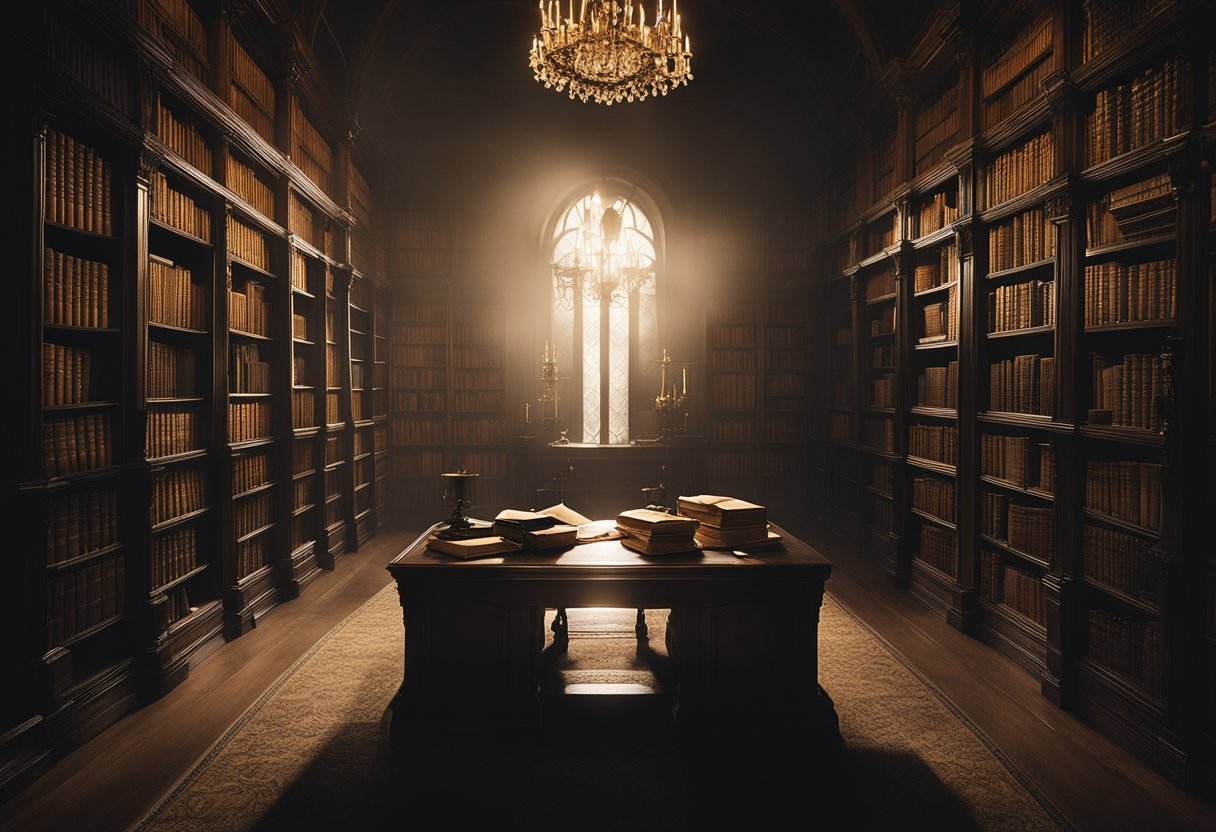
Occult themes in literature have evolved significantly over time, shaping popular perceptions of magic and mysticism. These themes draw from various mythological traditions and philosophical concepts, creating rich narratives that continue to captivate readers.
How do themes of magic in ‘Harry Potter’ compare with traditional occult philosophy?
The magic system in Harry Potter incorporates elements of traditional occult philosophy while adapting them for a modern audience. The series features concepts like alchemy, divination, and magical creatures that have roots in historical occult beliefs.
Spells in Harry Potter often use Latin-based incantations, reminiscent of ceremonial magic practices. The idea of inherent magical ability aligns with some occult traditions that believe in innate spiritual powers.
In what ways has Faustian literature influenced modern representations of the occult?
Faustian literature has significantly shaped modern depictions of occult practices and practitioners. The archetypal figure of Faust, a scholar who makes a pact with the devil, has become a recurring motif in occult-themed works.
This theme explores the moral implications of pursuing forbidden knowledge and power, a concept that continues to resonate in contemporary occult narratives. Faustian bargains often serve as cautionary tales about the dangers of unchecked ambition in occult pursuits.
What role does mythological symbolism play in shaping the narrative of occult-based literature?
Mythological symbolism forms the backbone of many occult narratives. Authors often draw from diverse mythological traditions to create complex magical systems and otherworldly beings.
Symbols like the pentagram, the ouroboros, or the tree of life frequently appear in occult literature, carrying layers of meaning derived from various cultural and historical contexts. These symbols serve to connect fictional magical worlds with real-world mystical traditions.
How have perceptions of magic and mysticism in literature evolved over centuries?
Early depictions of magic in literature often portrayed it as dangerous or demonic. Over time, representations have become more nuanced, exploring magic as a neutral force that can be used for good or ill.
Modern literature tends to present magic and mysticism as alternative ways of understanding the world, rather than purely supernatural phenomena. This shift reflects changing societal attitudes towards esoteric knowledge and practices.
What are the common motifs found in literature that combines occult themes with fantasy elements?
Common motifs include hidden magical societies existing alongside the mundane world, ancient prophecies, and the discovery of latent magical abilities. These elements create a sense of wonder and possibility.
Mystical objects with special powers, such as wands, grimoires, or talismans, are also prevalent. These items often serve as conduits for magical energy or repositories of ancient wisdom.
Can you trace the transformation of occult philosophies through different literary periods?
The Renaissance saw a revival of interest in Hermetic and Neoplatonic philosophies, influencing works like Marlowe’s “Doctor Faustus.” This period emphasized the pursuit of hidden knowledge.
The Romantic era brought a focus on individual experience and the supernatural, as seen in works like Goethe’s “Faust.” Modern literature often blends occult themes with psychological insights, exploring the human psyche through magical metaphors.

